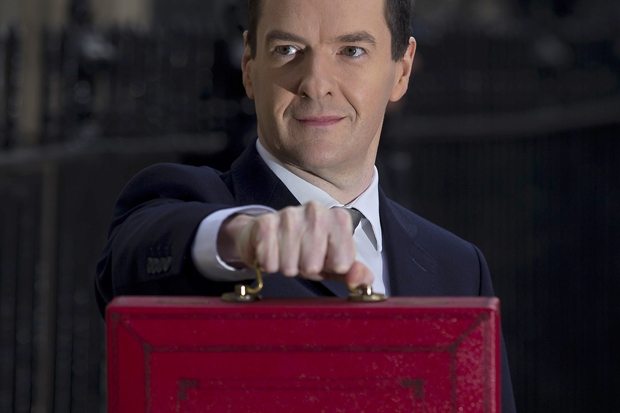George Osborne usually tells his aides to prepare for each Budget as if it were his last. This time round, the Chancellor and those around him needed no reminding of what is at stake. They knew that this statement had to boost the Tory election campaign and define the choice facing voters in May, otherwise it really will be the last Budget he gives. As one Tory MP put it, ‘The Budget’s got to deliver some political momentum or we’re done for.’
Osborne has long been aware of the importance of this Budget for his career. If David Cameron returns to No. 10 after the election, Osborne will take the applause. His stock will rise in the party; recollections of his disastrous 2012 Budget will be put aside. He will be hailed as the pilot who weathered the storm. But if Ed Miliband ends up as Prime Minister, Osborne will be damned along with Cameron. At 43, he will — in political terms — be finished.
It was for political reasons that Osborne adjusted his future spending plans to defuse the Labour charge that he wants to take public spending, as a percentage of the economy, back to 1930s levels. By tweaking his spending plans like this, Osborne has also reduced one of the major obstacles to another post-election deal with the Liberal Democrats.
Osborne, who understands coalition politics better than anyone, knew the Liberal Democrats didn’t want to be seen to be working hand in glove with the Tories so close to an election. So he made a series of offers that were too good to refuse: clear ‘wins’ on mental health funding, income tax and pension reform. They have even been presented with their own mini-Budget statement.









Comments
Join the debate for just £1 a month
Be part of the conversation with other Spectator readers by getting your first three months for £3.
UNLOCK ACCESS Just £1 a monthAlready a subscriber? Log in